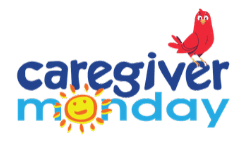Woman are uniquely challenged with it comes to brain health. According to the latest Alzheimer’s Association Fact & Figures Report, two-thirds of all Alzheimer’s cases are women. Meanwhile, more than 10 million wives, daughters, granddaughters, sisters or other female relatives and friends are serving as the majority of family caregivers for those with dementia.1 As scientists work to better understand the disproportionate rate of Alzheimer’s in women, including differences in brain structure, immune and reproductive systems and social relationships, we are celebrating National Alzheimer’s and Brain Health Awareness Month by offering ways to support Alzheimer’s caregivers, with special attention to women.
Are Men and Women’s Brains Different?
Significant developments have been made in our knowledge of body health but caregivers often still struggle to understand brain health and differences that exist between genders. What do we know? According a Stanford Medicine article, while men have larger brains by size, women have a larger hippocampus – the region of the brain that manages memory.2 This may correlate to evidence to suggest women have superior memory skills but raises questions about the progressive loss of memory in female Alzheimer’s patients. We also frequently hear women are more “right brained” (intuitive, subjective) while men are “left brained” (quantitative, analytical), but is that true? Not quite; there is no gender or even personality difference in usage of different brain regions. However, according to University of Pennsylvania researchers the two hemispheres of women’s brains are more interconnected, and talk to each other more, than men’s.3
Alzheimer’s Caregivers Face More Health Risk
Caregivers of those with progressive memory loss or other neurodegenerative challenges such as problems with language and communication and behavioral changes face their own health concerns. One study showed caregivers, who are disproportionally women, have increased risk for higher stress (25 percent more stress hormones) and depression (2-3 times the general population as well as compromised immune systems (15 percent less anti-bodies to help boost immunity).4
Partnering for Caregiver Brain Health
The lack of awareness surrounding brain health and desire to give tools for promoting caregiver and patient physical, emotional, and social health led WomenAgainstAlzheimer’s to launch its “Be Brain Powerful” campaign. The campaign, which features a 30-day challenge health survey and seeks to help women understand brain health and Alzheimer’s risk, is partnering with Caregiver Monday to promote better brain health habits throughout the month. Together, we are pleased to offer three unique Caregiver Monday activities to support better caregiver brain health.
- Sing A Song – One study showed musicians have a 64 percent lower risk for Alzheimer’s disease.5 The important factor is making music and actively engaging rather than passively listening. Whether caregivers actually play an instrument or just singalong to a favorite tune – this activity is a full brain workout that can boost mood and has shown to be neuroprotective.
- Try Mindfulness Over Loneliness – We know social isolation can have a negative impact on health but so can loneliness. Even if caregivers have people around them, they can still feel lonely in their caregiving role. One study found it is loneliness, not social isolation, that increases Alzheimer’s risk by 1.64 times.6 Mindfulness-based stress reduction (MBSR), which guides the mind to simply be attentive to the present and not dwell in the past or project into the future, successfully reduced the feelings of loneliness.7
- Shoot for 120 – A landmark 2019 study by the SPRINT-MIND scientific investigators found that maintaining a systolic number of 120 (upper number in a blood pressure reading) can reduce dementia risk by 17 percent.8 In other words, the physical activities – brisk walking, riding a bike, yoga – that help reduce heart disease risk and maintain a healthy blood pressure can also benefit your brain health.
References
1 Alzheimer’s Association, (2020). Facts and Figures Report 2020, Chicago.
2 Goldman, B., (July 7, 2019). Two minds: The cognitive differences between men and women. Stanford Medicine. Retrieved from: https://stanmed.stanford.edu/2017spring/how-mens-and-womens-brains-are-different.html
3 Ingalhalikar, M., Smith, A., Parker, D., Satterthwaite, T. D., Elliott, M. A., Ruparel, K., … & Verma, R. (2014). Sex differences in the structural connectome of the human brain. Proceedings of the National Academy of Sciences, 111(2), 823-828.
4 Vitaliano, P. P., Zhang, J., & Scanlan, J. M. (2003). Is caregiving hazardous to one’s physical health? A meta-analysis. Psychological bulletin, 129(6), 946.
5 Balbag, M. A., Pedersen, N. L., & Gatz, M. (2014). Playing a musical instrument as a protective factor against dementia and cognitive impairment: A population-based twin study. International Journal of Alzheimer’s Disease, 2014.
6 Holwerda, T. J., Deeg, D. J., Beekman, A. T., van Tilburg, T. G., Stek, M. L., Jonker, C., & Schoevers, R. A. (2014). Feelings of loneliness, but not social isolation, predict dementia onset: results from the Amsterdam Study of the Elderly (AMSTEL). J Neurol Neurosurg Psychiatry, 85(2), 135-142.
7 Creswell, J. D., Irwin, M. R., Burklund, L. J., Lieberman, M. D., Arevalo, J. M., Ma, J., … & Cole, S. W. (2012). Mindfulness-based stress reduction training reduces loneliness and pro-inflammatory gene expression in older adults: a small randomized controlled trial. Brain, behavior, and immunity, 26(7), 1095-1101.
8 Williamson, J. D., Pajewski, N. M., Auchus, A. P., Bryan, R. N., Chelune, G., Cheung, A. K., … & Cutler, J. A. (2019). Effect of intensive vs standard blood pressure control on probable dementia: a randomized clinical trial. Jama, 321(6), 553-561.
©2020 Sherri Snelling

0 Comments